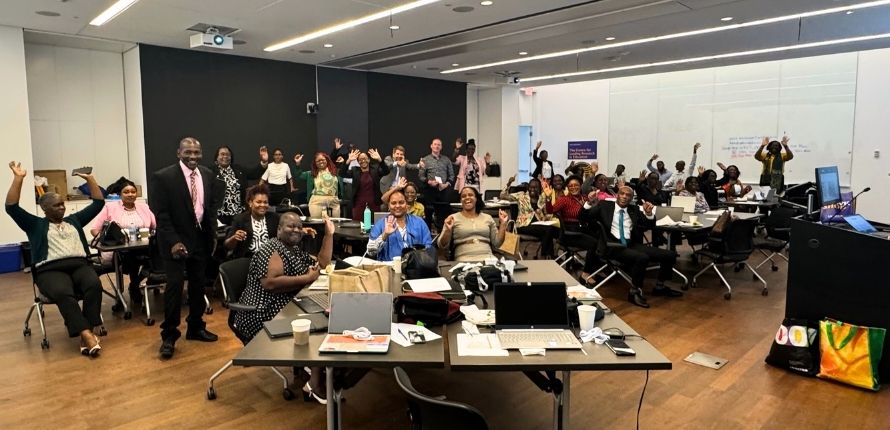We use cookies on this site to enhance your experience.
By selecting “Accept” and continuing to use this website, you consent to the use of cookies.
Search for academic programs, residence, tours and events and more.
July 21, 2025
Print | PDFA recent collaboration between Wilfrid Laurier University and the Organization of Eastern Caribbean States (OECS) is advancing inclusive education across schools in nine island nations.
A two-day education forum focused on making schools more accessible for students brought together more than 30 education delegates from OECS-member countries and Canadian experts at the Balsillie School of International Affairs from June 26 to 27, 2025. Chiefs of education, education planners, curriculum leads, and inclusive education specialists from the OECS met with researchers from Laurier and education experts from across Canada to exchange experiences, share findings and explore strategies for inclusive education.

Particpants gathered at the Balsillie School of International Affairs for the two-day forum.
Inclusive education involves teaching all students, regardless of physical or academic abilities, together in the same classrooms and school environments. In the OECS region, inclusive education also includes cultural and linguistic diversities as well as varying socio-emotional needs of learners.
Presentations and discussions addressed topics including inclusive education advocacy, school leaders as agents of change and cultivating authentic parent engagement. Forum outcomes will help shape the future of the OECS’s strategy on inclusive education, set to launch in the 2026-27 academic year, building upon the current Programme for Educational Advancement and Relevant Learning.
When children feel like they belong, the outcomes are powerful: better health, a greater likelihood of finishing school and a stronger connection to their communities.
“As we look to the future, we think about what a true inclusive education program looks like,” says Rafer Gordon, senior education specialist and project manager with OECS. “Partnering with Laurier, with research expertise in inclusive education, helps us chart pathways and help reshape educational experiences to fulfill the requirements of an advanced quality education system.”
Laurier researcher and inclusive education expert Professor Steve Sider forged the collaboration with OECS colleagues during the inaugural Regional Conference on Inclusive Education in Saint Lucia in February 2025. The conference, funded by the Social Sciences and Humanities Research Council (SSHRC) of Canada, Laurier and the Canadian Research Centre on Inclusive Education, brought together professionals from ministries of education in 11 eastern Caribbean countries and education experts from Canada to explore inclusive education at a systemic level within the OECS.
Sider is the director of the Inclusive School Leadership Research Team, a group comprised of more than 20 faculty members, as well as graduate and undergraduate students, from across Canada. The team is highly engaged in research projects examining inclusive education and school leadership in Canada, Ghana, Haiti, Saint Lucia, Mauritius and beyond. Sider is also the principal investigator on two SSHRC-funded studies examining how principals support students with special education needs in their schools.
“Inclusive education matters because we want every child to feel like they belong,” says Sider. “It doesn’t matter the country or region where that child attends school — belonging is universal. When children feel like they belong, the outcomes are powerful: better health, a greater likelihood of finishing school and a stronger connection to their communities. The more we foster that sense of belonging through inclusive education, the stronger our societies become.”
Fostering research collaborations with global partners aligns with Laurier’s commitment to the United Nations’ Sustainable Development Goals (SDGs), specifically SDG 4: Quality Education, which aims to ensure inclusive and equitable quality education and promote lifelong learning opportunities for all.
Laurier is ranked in the top 13 per cent of global universities according to the Times Higher Education (THE) 2025 University Impact Rankings, a two per cent rise in rank year over year. THE assessed 2,526 universities in 130 countries working toward the United Nation’s SDGs, which aim to address challenges including poverty and climate change.